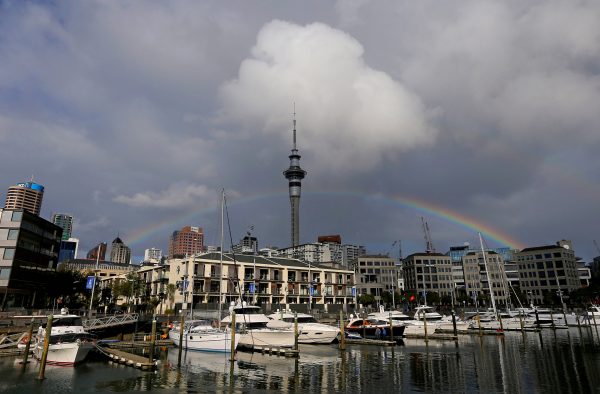The impact on the economy remains uncertain. Distributional effects have likely been stronger than aggregate effects, especially as capital gains from house ownership dominated other relative changes. Unemployment levels have been lower than expected, partly because of generous wage subsidies for businesses that experienced revenue declines.
But employment and beneficiary statistics demonstrate that there has been a cessation of immigration and a significant withdrawal from the labour force. Goods exports remained buoyant, with only brief worries when it was suspected that COVID-19 might lurk on refrigerated goods. But tourism and related industries — including international education — were badly affected.
There is much speculation about supply chains and the need for diversification. There were supply chain interruptions as many perishable goods are carried in passenger services and personal travel was curtailed. Demand sometimes increased sharply, especially for vaccines and medical supplies. Transport costs rose and service availability declined. But supply chains proved adaptable, demonstrating that ‘international production networks’ include substitutes. Discussion about diversification often concealed worries about dependence on China. But diversification helps manage independent risks — and the Chinese economy is sufficiently central to make most markets related.
Prime Minister Jacinda Ardern’s government faced extraordinary challenges. Discipline on public expenditure relaxed and it was hard to distinguish a sensible response to the economic challenges of COVID-19 from surrender to the lobbyists. The quality of decision-making suffered, whether in isolated cases — such as a proposed cycle path over Auckland harbour — or more generally, in a challenge to the framework of fiscal policy, which has prevailed over the last 30 years. Monetary policy was also challenged. Low international interest rates induced reliance on unconventional central bank injections, putting at risk the relationship between monetary and fiscal policy.
The rhetoric of transformation diminished. Legislative adjustments and expenditure initiatives continued but were often modest and responsive. Three major reform programs were planned but their implementation remains in doubt. The ‘three waters’ reform is intended to improve the infrastructure for all drinking water, stormwater and wastewater. In the education sector, polytechnics will be reorganised into a single institution and the major school qualification is being revised. In the health sector, existing district health boards will disappear as a new health authority — Health New Zealand — and the Maori Health Authority assume leadership of the sector.
The debate about centralisation is common to many economies. Pursuing economies of scale provides a possible route to efficiency, but it is surprising to see a faith that centralisation alone will generate coordination and efficiency in a world which is moving towards networks and collaboration.
The debate in New Zealand is complicated by a concern to find an appropriate place for Maori, its indigenous people. Relations between the government and the Maori are framed by the Treaty of Waitangi but the relevant jurisprudence owes little to history and the debate could be conducted in terms of the UN Declaration of the Rights of Indigenous Peoples.
An advisory report about the implementation of the UN declaration created suspicion about the government’s intentions. The government did not share the report with its then coalition partner, let alone the electorate, before the 2020 election. It has not made any formal response to it and allows itself to look beholden to the ‘Maori caucus’ within its numbers.
In a difficult year, a bright spot for the government was the outcome of its year as the chair of APEC. An early decision to sacrifice the diplomatic gains from visits by leaders of Asia-Pacific economies was justified by the smooth running of an entirely virtual APEC year.
New Zealand’s APEC year benefited from the continuity in its agenda. The country’s enthusiasm for promoting the role of women in APEC economies was directed towards consolidating and broadening the existing ‘La Serena’ initiative and built on a general enthusiasm for inclusive growth. But the Indigenous Peoples Economic and Trade Cooperation Arrangement may not loom as large in APEC economies as it does in New Zealand reporting.
The agenda for the year mixed effective responses to COVID-19 with managing the recovery and engaging APEC economies. While geopolitical tensions were never far below the surface, there were useful, specific agreements — notably on customs procedures and subsidies on fossil fuels — and a general reaffirmation of the role of an open, rules-based trading system.
Even that success seems insecure. The government navigated wider strategic pressures but the ‘Indo-Pacific’ gained ground relative to the ‘Asia-Pacific’. More appreciation of the inclusive approach of the ASEAN Outlook on the Indo-Pacific would assist the government to build on the success of its APEC year.
Gary Hawke is a Fellow of the Royal Society of New Zealand and a member of the Academic Advisory Council of the Economic Research Institute for ASEAN and East Asia (ERIA).
This article is part of an EAF special feature series on 2021 in review and the year ahead.

